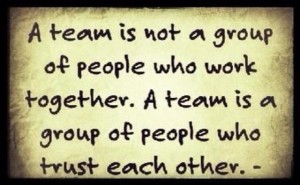At the Sales 2.0 Conference in Philadelphia on March 16, industry authors and experts will share with hundreds of B2B sales leaders three key principles for success in 2015.
Point #1: Learning How to Overcome the Fear of Failure
The fear of failure and rejection is fatal in sales organizations, yet many sales teams are held hostage by it. Author and entrepreneur Jia Jiang has personally experienced the negative effects of remaining in a “cozy comfort zone.” At the event, he will share the story of how he learned to embrace rejection so that sales leaders can take this insight back to their teams. He will also outline an action plan consisting of exercises that will help salespeople overcome fears of all kinds.
Point #2: How to Sell to the Millennial Buyer
Millennials will soon be 50 percent of the workforce. The B2B buyer will soon have styles, preferences, and habits that are totally different from those of current buyers. According to research from McKinsey & Company, this development is one of the critical megatrends that will affect sales organizations on all levels. At the Sales 2.0 Conference, Jennifer Stanley, an expert associate principal at McKinsey & Company, will share important ways sales leaders can prepare to respond to this trend, including 1) cutting the standard sales pitch, 2) cultivating a team of “social sellers,” and 3) focusing on the personal goals of buyers rather than on overall company goals.
Point #3: Focus on Developing Leadership Skills
According to author Stew Friedman, many leaders express only certain parts of themselves at work. Friedman, who is the founding director of the Wharton Leadership Program, says his research has shown that the most successful leaders live an integrated life – that is, they apply their skills holistically in all environments. At the Sales 2.0 Conference, Friedman will share how leaders can merge their skills in the professional and personal realms and achieve greater success.

